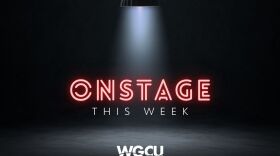TALLAHASSEE — Florida Attorney General Ashley Moody’s office late Wednesday pumped up arguments against a proposed constitutional amendment that would authorize recreational use of marijuana, saying the measure “misleads” voters in a way to benefit the state’s largest medical-marijuana operator, Trulieve.
Tallahassee-based Trulieve has contributed all but a fraction of the nearly $40 million raised by the Smart & Safe Florida political committee for the proposed “Adult Use of Marijuana” initiative, which would go on the 2024 ballot.
The committee, which is sponsoring the proposal, has submitted more than the nearly 900,000 signatures required to go before voters next year, but faces a final hurdle — Florida Supreme Court approval of the proposed ballot wording.
Lawyers for Moody, the Florida Chamber of Commerce and the Drug Free America Foundation have filed briefs arguing the Supreme Court should reject the proposal. Smart & Safe Florida’s attorneys last month called the state’s arguments a “thinly veiled policy agenda.”
In a brief filed late Wednesday, Moody’s office fired back and argued, in part, that the measure is misleading to voters in a manner that would help Trulieve continue its dominance in Florida’s legal cannabis market.
“This carefully curated ballot summary misleads in ways that, though sometimes subtle, are likely to influence voters — and to do so in a way that entrenches the sponsor’s monopolistic stranglehold on the marijuana market to the detriment of Floridians. The initiative should be stricken,” state Solicitor General Henry Whitaker wrote in the brief.
The summary that voters would see on the ballot says the proposed amendment “allows adults 21 years or older to possess, purchase, or use marijuana products and marijuana accessories for non-medical personal consumption by smoking, ingestion, or otherwise.”
The proposal also says it “applies to Florida law” and “does not change, or immunize violations of,federal law.”
But the state argued that the use of the word “allows” is misleading because “the amendment would not actually allow anything; all possession of marijuana would remain unlawful under federal law.”
A Smart & Safe Florida brief filed last month disputed those arguments.
“It strains credulity well past the breaking point to think that the average voter is unaware that marijuana is illegal at the federal level. That prohibition has been a major subject of national debate for years,” lawyers for the sponsor wrote on July 19.
Moody’s lawyers punched back Wednesday.
“In its pursuit of a larger customer base and greater profits, Trulieve has invited millions of Floridians to join it in reckless violation of federal criminal law,” Whitaker wrote.
Most Americans “cannot name a single Supreme Court justice,” the state’s brief said.
“If anything, most reasonable voters would not assume that a national corporation like Trulieve would openly and notoriously violate federal criminal law. That evidently is not true. … Trulieve may be reckless enough to stake an entire business model on the whims of federal prosecutors,” Moody’s attorneys wrote. “But it cannot invite Florida voters to permanently amend their governing charter by promising that the amendment will do something (‘allow’ recreational marijuana) that it will not do.”
A footnote in the sponsor’s July brief pointed out that the U.S. Department of Justice “across multiple presidential administrations” has “not targeted businesses or consumers who comply” with state marijuana laws.
“The notion that Floridians exercising their rights under the amendment will face any real threat of federal jeopardy is thus farfetched,” Smart & Safe Florida’s attorneys argued.
Moody’s office also targeted a part of the ballot summary that says the measure would allow current medical-marijuana operators, known as medical marijuana treatment centers, and other “state-licensed entities to acquire, cultivate, process, manufacture, sell, and distribute” marijuana products and accessories.
The state argued the language is misleading because only licensed medical-marijuana operators would be entitled to participate in the recreational-use program, unless the Legislature expands the current licensing process.
“The summary, in short, falsely states that the proposed amendment, of its own force, expands beyond MMTCs (medical marijuana treatment centers) the businesses that can be licensed to engage in the marijuana trade in Florida. This misdirection was no doubt engineered by the sponsor to appeal to voters who wish to end MMTCs’ stranglehold on the state’s marijuana market. That bait-and-switch is misleading,” Moody’s lawyers argued.
But in a statement Wednesday, Smart & Safe Florida refuted the state’s position.
“We have the deepest respect for our state’s attorney general but feel the brief she submitted misses the mark. The Smart & Safe ballot measure takes a very strict and conservative approach and not only followed the court’s roadmap established in prior rulings but clearly limits the language to a single easy-to-understand subject. As such, we hope the court will stick to the current standards laid out in law and will give Floridians the chance to vote on this ballot item,” the statement said.
Trulieve also defended the proposal, which has drawn briefs in support from the American Civil Liberties Union of Florida and the Florida Medical Marijuana Business Association.
“The ballot language is clear, states the chief purpose of the amendment and – without a doubt – covers one and only one subject. For these reasons, we trust the court will agree that the voters of Florida should have the opportunity to vote to allow adults in Florida the freedom to use cannabis for their personal consumption,” Trulieve said in a statement Wednesday.
The court twice ruled that previous initiatives aimed at authorizing recreational use of marijuana did not meet constitutional muster. Under the Florida Constitution, ballot initiatives must not be confusing to voters and must address a single subject.
Lawyers for Safe & Smart Florida argued that, in drafting the 2024 proposal, they followed a “clear roadmap” laid out by the court in the previous rulings rejecting marijuana measures.
“Yet the attorney general now asks this court to suddenly change course, holding that the language previously approved — repeatedly and unanimously — is no longer sufficient, despite this court’s description of that language as the model for sponsors just two years ago,” they wrote in last month’s brief.
But the state’s attorneys urged justices to ignore their prior decisions and focus on the current measure.
“Anything less than searching review of a ballot summary risks the Florida Constitution becoming ‘the den of special interest groups,’” they wrote, citing a previous Florida Supreme Court ruling. “So while the sponsor has spent a small fortune (some $40 million) peddling its initiative to Floridians, there are far more important interests at play.”
In a brief written by former Justice Alan Lawson, the Florida Chamber of Commerce argued that the court should nix the proposal because it fails to meet the constitutional single-subject requirement. The Florida Chamber has a long history of opposing ballot initiatives and championed efforts to make it harder for measures to be placed on the ballot.







